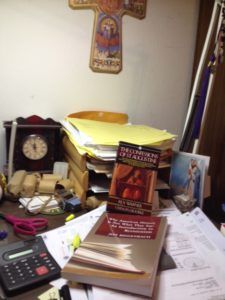
The writer's duty to himself: Write what you want to write, as well as you can, and then forget it." Albert Jay Nock. Amen to that. Of course, it might be hard to make money off your writing with that approach, but then again, if you're writing for money, you're not writing artistically.
Actually, I don't even believe that any more. I used to, but I've become aware that at ton of great art has been produced under the pressures of penury: Belloc wrote to live, as did Chesterton. Twain did. Rubens' workshop mass produced art for sale, and Picasso loved the money. The examples would go on forever, whereas the list of artists who produced with no thought of monetary reward is quite small: van Gogh perhaps, the Arab poet Almutannabi, Socrates (who perhaps gave us the example of the terribly-detached artist . . . though his was the intellectual art of philosophy). The artist might suffer for his art, but that doesn't mean he suffers without hope of pecuniary reward. It's rare that any one thing motivates a man. More often, an amalgam of considerations enter into any decision.
Though there is one huge exception: the existential artist, those individuals who are known to us as "saints." The saints are individuals who have focused their lives on one thing: God, and those things that spring from God: humility, love, service, and all the virtues. And it's the saints who, I suspect, kind of mirror Nock's attitude toward writing. Just as Nock urged writers to write what they want as well as they can and then forget it, the saint chooses to love God as well as they can and, in the resulting permanent outward disposition, forget about it.









